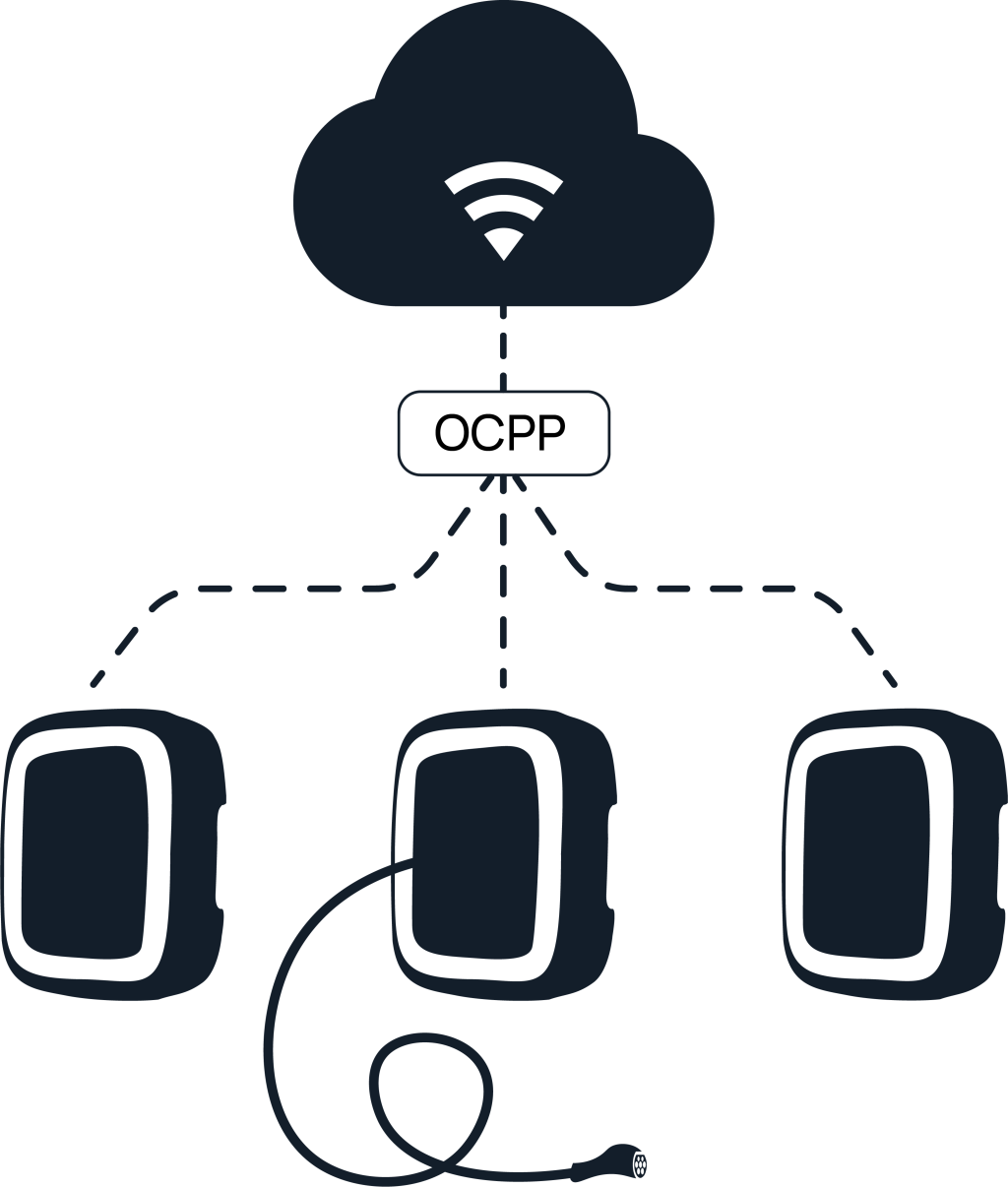Introduction
The Open Charge Point Protocol (OCPP), developed by the Open Charge Alliance, is an application protocol designed to establish a standard for communication between Electric Vehicle (EV) Charging Stations and Charging Station Management Systems (CSMS). Its purpose is to ensure compatibility and flexibility as the world transitions to a more EV-centric future, creating a way for any Charging Station to connect with any management system. This is why OCPP has now become the standard across the globe.

Advantages of adopting OCPP
Through OCPP there is now a standardized way to communicate a number of key functions, including start and stop, status messages, availability, authorization, transaction handling, and more.
Previously, many EV Charging Station manufacturers used custom systems and software to implement these features. With OCPP as an industry standard, third party management systems can easily adapt, upgrade, or mix their Charging Stations without the need to revise their own systems. This flexibility also allows EV Charging Station owners to select a management system that best suits their needs.
In summary, OCPP promotes innovation, flexibility, security, and interoperability for the Electric Vehicle community through a free-to-use, open-source standard.
OCPP versions
There are multiple versions of OCPP currently in use with OCPP 2.0.1 being the most recent to fully launch at the time of writing. Version 2.0.1 was released in 2020, adding features and functions requested by the community like improved Device Management Features, Improved Transaction handling, and more.
OCPP 1.6 was released in 2015 and made a big impact around the world. It is still in wide use today despite the newer versions being published.
For more info regarding OCPP and its versions, visit the Open Charge Alliance website.